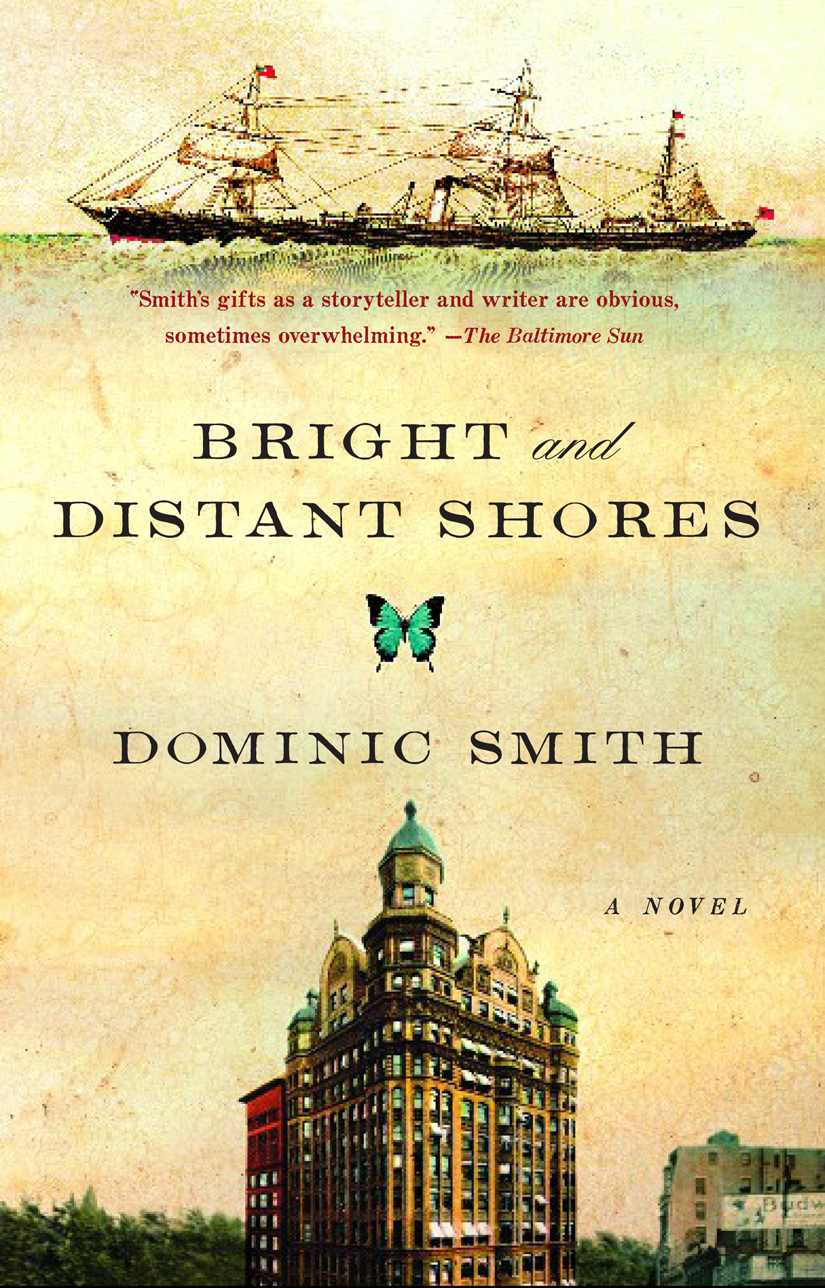
Bright and Distant Shores
A Novel
کتاب های مرتبط
- اطلاعات
- نقد و بررسی
- دیدگاه کاربران
نقد و بررسی

Starred review from July 11, 2011
Smith's impressive third novel (after The Beautiful Miscellaneous) is an absorbing exploration of culture, tradition, and renewal through the high seas adventure of three very different men. In late 1890s Chicago, an insurance magnate contracts Owen Graves, a demolitions expert, for an expedition to secure artifacts and "a number of natives... for the purposes of exhibition and advertising." A stipulation in the contract states that the magnate's spoiled son, Jethro, will serve as the ship's naturalist, despite having no knowledge of the workings of the real world. On the journey, Jethro spoils the ship with autopsied animals and withdraws from the crew of ex-cons. But Owen, the captain, and the crew have vivid encounters with native Melanesian islanders, two of whomâArgus Nui and his sister Maliniâare taken aboard. Argus's "scholar's English" and islander knowledge secures him employment as an assistant on deck, but once delivered to Chicago, he and his sister are made to perform a public parody of native life, making the divide between heritage and Western values very clear. Jethro becomes dangerously fixated on Malini, and Owen comes to her aid. Smith expertly combines well-drawn characters with a complex narrative that moves smoothly to the dawn of a new century.

August 1, 2011
Written with extraordinary literary grace, Smith's (The Beautiful Miscellaneous, 2007, etc.) third novel gleams as a gem of evocative historical fiction.
Owen Graves, orphaned at 13, is the son of a Chicago demolition expert, a youngster enthralled by the artifacts gleaned from wreckage as he worked alongside his father. As the 20th century nears, young Owen is freed from an orphanage but unsure of his future. His love for relics of the past inspires a voyage to Melanesia, where he trades for primitive art and weapons. His success brings him to the attention of Hale Gray, president of an insurance company. Having constructed the tallest skyscraper in Chicago, Gray is ready to underwrite a trading voyage. He wants to decorate the headquarters with South Sea treasures, as a sales tool and as a comeuppance to his neighbor, the retailer Marshall Field, sponsor of the new Field Museum. Owen sees the expedition as a way to secure his future, but there are problems. Owen has fallen in love with Adelaide Cummings, daughter of a wealthy Bostonian, and Gray wants Owen to return with natives to be exhibited. This troubles Owen's instinctual ethics, and he knows importing natives for exhibit will fracture his relationship with Adelaide, a woman deeply involved with charity work at Hull House. Another complication is Gray's insistence that his unstable son Jethro, a dilettante naturalist, accompany the trader. Smith expands the narrative to include Argus Niu and his sister, Malini, siblings from an island near New Guinea. Argus failed as a warrior and was sent to work as a houseboy for a Presbyterian missionary. Malini married into another tribe but was widowed. Smith's dexterity in limning out Argus and Malini is masterful, and that skill extends to the expedition ship's captain, its sailors and the milieu of sailing life, island culture abraded by modernity and bustling streets of 1890s Chicago.
Beautifully researched and ripe with symbolism—an enthralling narrative peopled by characters both exotic and real.
(COPYRIGHT (2011) KIRKUS REVIEWS/NIELSEN BUSINESS MEDIA, INC. ALL RIGHTS RESERVED.)

July 1, 2011
At the end of the 19th century, two orphans from opposite sides of the world meet in a drama that will lead one to fulfill his dream, while destroying the other's. A collector since childhood, Owen Graves turned his natural inclinations into a career, bringing back the bizarre and unusual from island nations of the Pacific to fill local museums. On his last voyage, he meets Argus Niu, a mission houseboy in the New Hebrides (today's Vanuatu) who reads and speaks impeccable English; Owen convinces Argus to return to Chicago as part of the "collection," along with his sister. Australian-born Smith (The Beautiful Miscellaneous; The Mercury Visions of Louis Daguerre) weaves the multiple threads of the characters' stories into a lyrical and colorful pattern while bringing the teeming streets of Chicago and the unspoiled islands of Melanesia to life. His characters are so well drawn and realistic that readers will want to keep following them just a bit further. Even the historical details--from South Seas customs to Chicago weather--maintain the novel's momentum rather than dragging it down with seemingly superfluous description. VERDICT This excellent read will appeal to those who enjoy literary historical fiction with a touch of exotic adventure.--Pam O'Sullivan, Coll. at Brockport Lib., SUNY
Copyright 2011 Library Journal, LLC Used with permission.

July 1, 2011
This magnificent epic sits at the messy intersection of exploration and exploitation in the late-nineteenth-century South Seas. Chicago insurance magnate Hale Gray, not satisfied by building the world's tallest skyscraper, sends trader Owen Graves on a ship to Melanesia to procure tribal artifacts and several natives for a rooftop exhibition to rival Marshall Field's museum. Although concerned by the ethical implications, Owen needs cash to support a wife. In the remote New Hebrides, he meets literate, English-speaking Christian Argus Niu, who, along with his sister, gets drawn into the plans. The Nius and the other so-called savages encountered en route are nowhere near as ignorant as expected. As the Cullion travels from isle to isle on its collecting spree, the reader glimpses scene after memorable scene, marveling at the strangeness of these unfamiliar cultures while cringing at the uncouthness of Gray's priggish, would-be naturalist son. Smith's buoyant writing carries the novel through the pitches and swells of the entertaining plot, and his virtuosity with language makes for pitch-perfect description of all he surveys.(Reprinted with permission of Booklist, copyright 2011, American Library Association.)

























دیدگاه کاربران